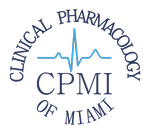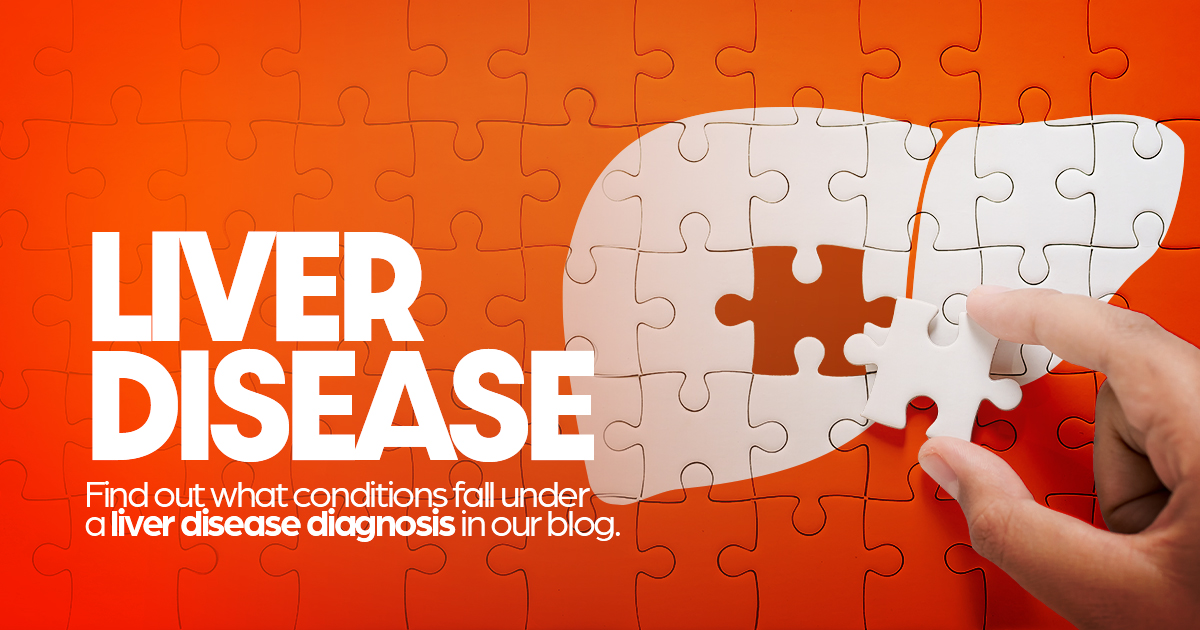Liver disease is a wide-ranging umbrella term for any medical issue affecting the liver ranging in severity. Here are 5 different types of liver disease and their causes – learn more in our blog below!
The Rundown on Liver Diseases
Approximately 1 in 10 individuals in the U.S. are affected by liver diseases. Hepatic disease or liver disease encompasses many issues that can affect people differently—often classified as any disorder of the liver that affects its ability to function correctly. Initial symptoms can include fatigue, nausea, and lack of appetite. However, it’s also important to note that many people are asymptomatic and can go undiagnosed for years. Early diagnosis is essential to prevent permanent damage to the liver. Liver diseases come in all shapes and sizes. Educating yourself on the various types is an excellent place to start, as each requires different treatments to manage appropriately.

Here are 5 different types of liver disease to become familiarized with:
1.)Alcoholic Induced Liver Disease
A condition that affects millions of people a year is alcoholic-induced liver disease. Essentially, this type of liver disease is caused by excessive, long-term alcohol use, which can lead to a range of symptoms from mild discomfort to dangerous and potentially fatal liver damage. The severity of the damage depends on the duration and quantity of alcohol consumption and lifestyle habits. Still, it can be exacerbated by other medical conditions such as viral hepatitis or obesity. Luckily, alcoholic liver disease is preventable if you stick to low levels of moderate drinking and seek immediate treatment for signs of discomfort or ill health.
2.)Autoimmune Liver Disease
This form of liver disease is a chronic liver inflammation caused by your body’s immune system attacking itself. Estimates suggest 60-70% of cases are genetically predisposed, but lifestyle factors can also play a role. While there’s no known cure for autoimmune liver diseases, treatments such as steroids, intravenous immunoglobulin, and biological therapies can relieve symptoms and slow progression. In some more advanced cases, a liver transplant may be necessary to improve the quality of life.
3.)Nonalcoholic Fatty Liver Disease
When fat accumulates in the cells of your liver, constituting more than 10% of its weight, you’re facing what’s known as Nonalcoholic fatty liver disease or NAFLD. Obesity, diabetes, and high cholesterol can all contribute, as well as excessive alcohol consumption and metabolic issues. Resulting in a myriad of problems, including inflammation and cirrhosis (liver scarring.) Treatment varies depending on the underlying cause, but common approaches involve mindful nutrition choices and physical activity. If NAFLD is left untreated, it can progress to the more severe condition known as NASH or nonalcoholic steatohepatitis. Unlike fat deposits in the liver with NAFLD, NASH involves inflammation and liver cell damage. Symptoms may include fatigue, weight loss, abdominal pain, and jaundice. As we continue to increase our understanding of this all-too-common condition, new treatments are underway to help those living with NAFLD or NASH.
4.)Hepatitis B and Hepatitis C
Both hepatitis B and C are liver-related illnesses caused by viruses. While hepatitis B is a relatively common virus, hepatitis C is more severe and can lead to long-term health implications. Treatment for both types of hepatitis generally involves effective management of the virus with antiviral medicines and monitoring any damage the virus has caused to the liver. For those infected with chronic forms of hepatitis B or C, their treatment may also require specific lifestyle changes. With the proper medical care, individuals infected with either type of hepatitis can find relief from symptoms.
5.)Metabolic/Inherited Liver Disease
Genetic disorders that lead to impaired functioning of the liver are known as metabolic and inherited liver disease. These diseases can include conditions such as Wilson’s disease and Gilbert’s Syndrome, which both slow down the body’s metabolism due to a buildup of toxins. Treatment is dependent on the specific condition and its severity. While some cases can be managed with lifestyle changes, in more severe cases, medical intervention is necessary.

At Clinical Pharmacology of Miami, we want to help you piece together your liver health. Learn more about upcoming liver studies or schedule your FREE fibroscan today!
Resources:




